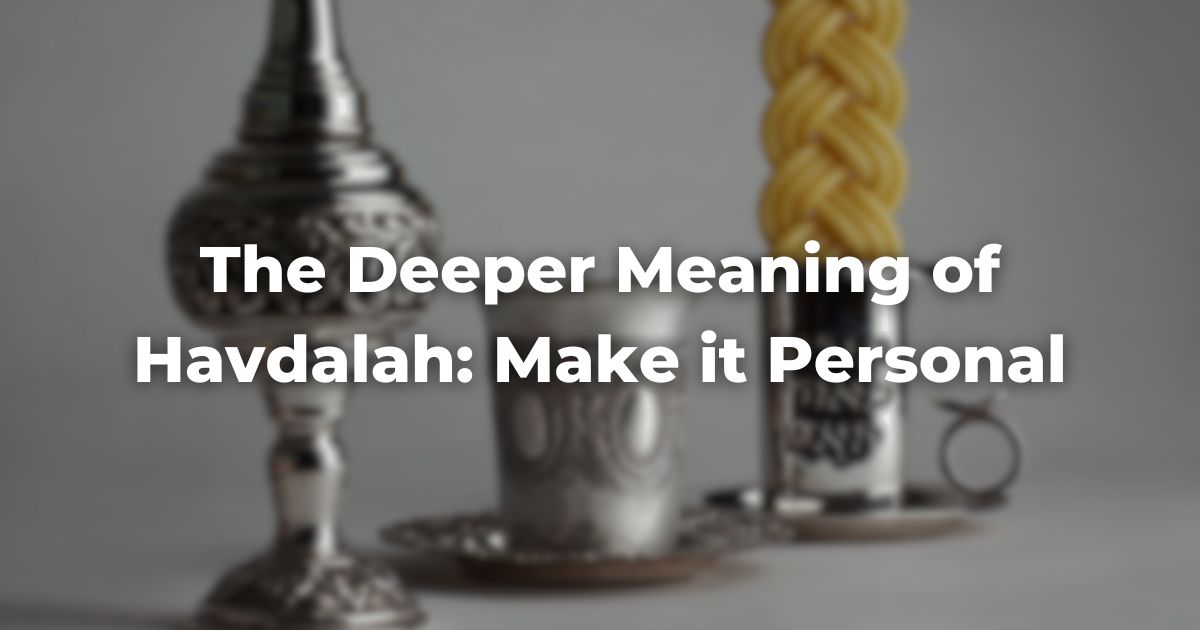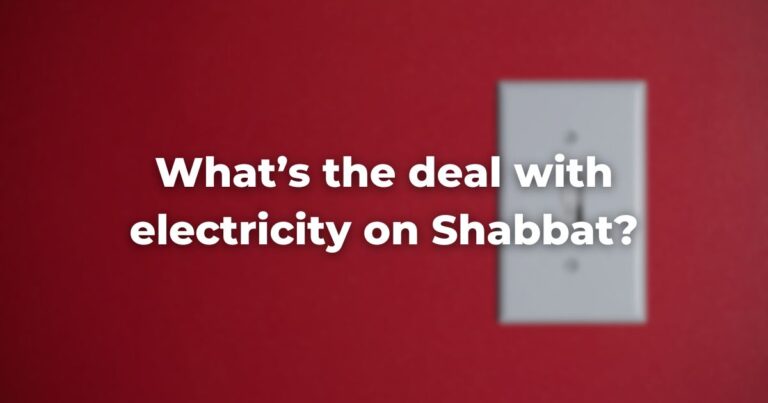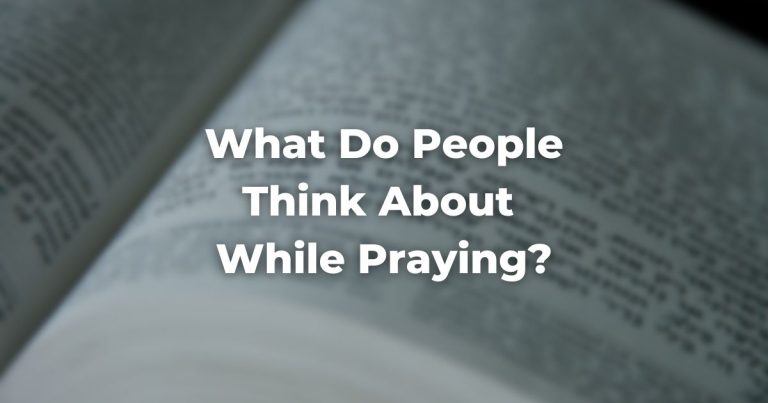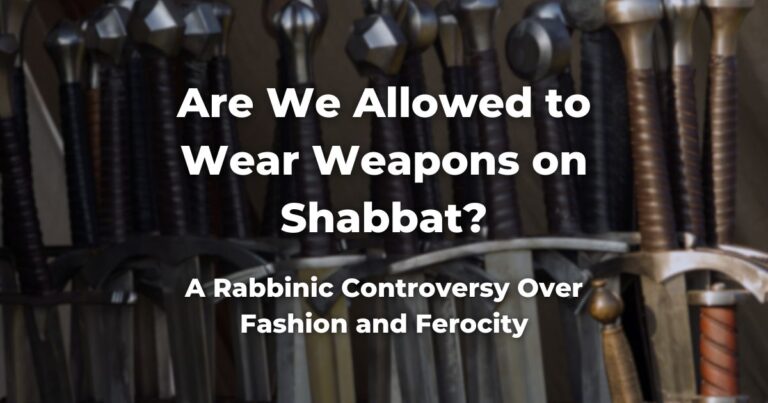If I told you to close your eyes and think of “Havdalah,” you might say it is mystical, joyful, and unforgettable. This is because Havdalah can be special for everyone.
Havdalah contains multitudes. Havdalah is fun! Havdalah is mystical. Havdalah is tears and emotions. It is the end and the beginning. Havdalah is hugging and being together. Havdalah is songs and hope. Hope for a new fresh and pure beginning. Havdalah is unique, Havdalah is… there’s nothing quite like Havdalah.
So, what is Havdalah?
Havdalah comes from the verb L’havdil in Hebrew, which means to separate, or, to make a distinction. It is a ceremony that separates the holy Shabbat (or Yom Tov) from the regular days of the week.
The mitzvah of making Havdalah dates back to early in Jewish history, in particular, the Great Assembly (around 515 BCE to 70 CE), when the Jewish sages formalized many prayers and rituals.
According to Maimonides (Rambam, Hilkhot Shabbat 29:1), the mitzvah of Havdalah is a commandment from the TorahRefers to the first five books of the Hebrew Bible, the Tanakh, also called the Five Books of Moses, Pentateuch or the Hebrew equivalent, Humash. This is also called the Written Torah. The term may also refer to teachings that expound on Jewish tradition. Read more, derived from the commandment to sanctify the Sabbath, as it is said (Exodus 20:7): “Remember the Sabbath day to sanctify it.” The idea being, when you enter Shabbat, you sanctify it with wine and blessing (“Kiddush”), therefore, when we exit Shabbat, we do the same.
The timing of Havdalah is specific. It is performed after three stars are visible in the night sky on Saturday evening because being able to see three stars makes it officially night time. This natural marker ensures that Shabbat has truly ended. The ceremony in its original format, with fire and spices, must be completed before dawn of the next day, though ideally it should be performed as soon as Shabbat ends.
Click here to check out Exploring Judaism’s Simple Havdalah Guide.
The Havdalah ritual engages all five senses making it a fully immersive experience.
- Sight: The ceremony centers around a special braided Havdalah candle with multiple wicks. This multi-wick design creates a larger, brighter flame symbolizing the first fire that God showed Adam after the first Shabbat. Traditionally, people raise their hands toward the flame and look at their fingernails in its light, reminiscent of how Adam discovered fire’s illuminating properties.
- Smell: A spice box (B’samim in Hebrew) filled with sweet-smelling spices like cinnamon, cloves, or bay leaves is passed around. The pleasant aroma is meant to comfort the soul as it mourns the departure of the “extra soul” we receive during Shabbat.
- Taste: The ceremony includes drinking wine or grape juice from a full cup, which often overflows into a saucer to symbolize abundance and blessing for the coming week.
- Touch: Participants are encouraged to join hands or link arms during the blessings, creating a physical connection between family and friends. Some also pass the spice box from hand to hand, creating another tactile element.
- Hear: The leader chants the blessings in a traditional melody, and others often join in, especially for the final blessing. Many communities also sing “Eliyahu Hanavi” (about the Prophet Elijah) after Havdalah, expressing hope for redemption in the coming week.
The order of the ritual is as follows:
- Yayin: Blessing over the wine
- Kiddush: Blessing over the spices
- Ner: Blessing over the fire
- Havdalah: Blessing of separation (from Shabbat)
After the blessings, it’s customary to extinguish the Havdalah candle in the wine, creating a satisfying sizzle. Some say, “The longer the sizzle, the longer the week.” Others dip their pinkies in the wine and put a drop in their pockets for prosperity, or touch their eyelids with wine-dipped fingers to symbolize enlightenment.
The ceremony concludes with wishes for a good week (Shavua Tov), often accompanied by singing and dancing. Some communities add extra songs or prayers for success and blessing in the coming week.
Through this beautiful ritual, Jews worldwide transition from the peace of Shabbat into the energy and activity of the new week, carrying with them the spiritual elevation and joy of the day of rest.
While Havdalah has strict rules and blessings, but it can be performed in a variety of ways across a huge spectrum.
Once, I heard a Havdalah service performed in 26 seconds! It was in a synagogue, during the “Maariv” (evening) service. Everything was prepared for the leader and he said the four blessings with the cup, spices, and the candle. Done! On the other hand, I’ve been to Havdalah services which lasted an hour that included Torah learning, good wishes for the new week, and lots of singing and dancing.
My Personal Practice:
My personal Havdalah is unique and long. It starts with optional prayers and requests for the week ahead. The longing alphabet song of arriving Eliyahu the prophet with Messiah (son of David), and requests for the next week in alphabet order.
Before we begin, I video call my family who live in different cities here in Israel so we can do havdalah together. Everyone is prepared with all of the supplies: wine, spices, kipa, and a smile.
We begin by reciting the special blessing for a good week composed by Rabbi Levi Yitzhak of Berdichev (also known as the ‘Attorney of Israel’) three times.
Then I take the cup of wine in my right hand, the spices in my left hand and chant the prayer request that is written in the Sephardic siddur and add to it some of my own requests.
After the requests, we do the traditional Havdalah ritual described above with the four blessings, drinking the wine, and extinguishing the candle with some wine on the plate.
Immediately afterward, I take out my guitar and we sing Havdalah traditional songs, Sephardic and Ashkenazic. We add popular Israeli songs, selecting them depending on the time of the year. (If the Purim holiday is coming, I would play some Purim songs, etc).
One of my favorite, and funny Sephardic traditions during the Havdalah ritual is the custom of looking at the cup of wine and seeing your reflection. After seeing your face, the tradition is to laugh out loud!
This tradition is inspired by King David. In the Psalms, he asks from G-d: “Please tell me when will I die?” (Psalms 39:5). According to oral tradition I received, we understand that G-d answers: “This secret I don’t tell anyone, but, I can tell you that you will join the next world on Shabbat.” From that moment, David prayed every Shabbat not to die on that day. During one Havdalah, he looked at the wine in his havdalah cup like a mirror. As he saw his reflection, he realized he was still alive and had a whole week of full life in front of him. With this understanding, he laughed out loud joyfully.
I love this Sefardic tradition, so I look into the wine and laugh very loudly. This moment of wild laughter and silliness brings a big joy to my parents.
There’s considerable room for creativity in Havdalah, including adding personal prayers and customs.
Havdalah can be so much fun! The Havdalah ritual beautifully marks a sacred transition between the sanctity of Shabbat and the mundane world of daily labor. This mitzvah does more than merely mark a temporal boundary; it creates a sacred connection between two seemingly opposite realms.
Through its symbolic separation, Havdalah transforms the boundary itself into a moment of holy linkage, reminding us that the sacred and the ordinary are not truly separate, but intricately intertwined in our spiritual journey, every week, forever.
Author
-
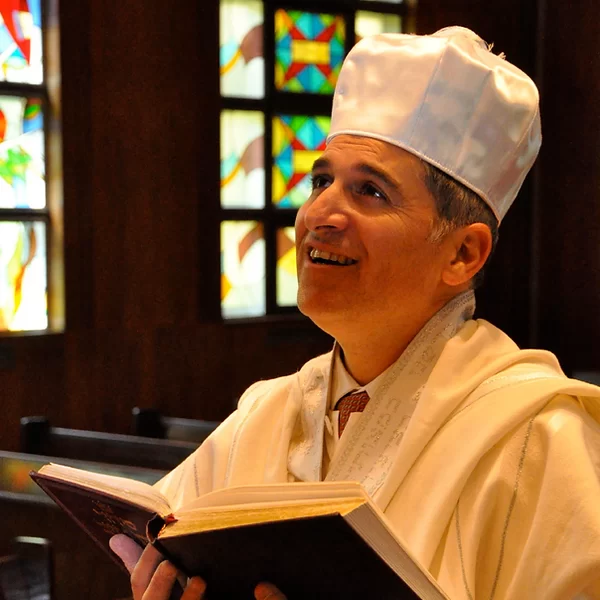
Born in Jerusalem (1965), Boaz Davidoff is a cantor, musician, and rabbinical student living between Israel and Montreal. He was a fellow in the first cohort of the Exploring Judaism's Writer's Fellowship. He serves as cantor at Montreal's Shaarezedek Synagogue and teaches Bar-Mitzvah, voice, and guitar in Israel. Boaz performs concerts solo and with his band across Israel. Currently in his final year of rabbinic studies at Jerusalem's Schechter Institute, he occasionally substitutes as rabbi in Montreal. Married with three children, Boaz is passionate about Israel, organizing charity concerts and events to support the country. He combines his musical talents with religious leadership, bridging communities in Canada and Israel.
View all posts

